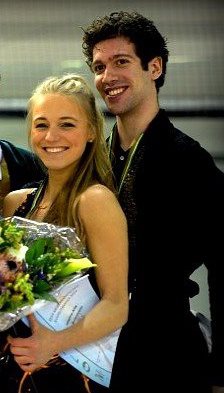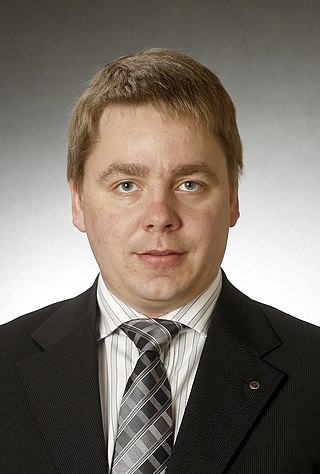Related Research Articles

Linnart Mäll was an Estonian historian, orientalist, translator and politician.
Estonian Sports Association Kalev is a sports association in Estonia, founded in 1901.

Mihhail Lotman is an Estonian literature researcher and politician, son of Juri Lotman and Zara Mints.

Founded in 1938, the Estonian Academy of Sciences is Estonia's national academy of science in Tallinn. As with other national academies, it is an independent group of well-known scientists whose stated aim is to promote research and development, encourage international scientific cooperation, and disseminate knowledge to the public. As of March 2017, it had 77 full members and 20 foreign members. Since 15 October 2014, the president of the Academy is the mathematician Tarmo Soomere.

The Estonian Figure Skating Championships are a figure skating national championship held annually to determine the national champions of Estonia. Medals may be awarded in the disciplines of men's singles, women's singles, pair skating, and ice dancing on the senior, junior, and novice levels.

The Estonian Students' Society is the largest and oldest all-male academical student society in Estonia, and is similar to the Baltic German student organizations known as corporations (Corps). It was founded in 1870 at Tartu. It has over 900 members in Estonia and abroad.
The Learned Estonian Society is Estonia's oldest scholarly organisation, and was formed at the University of Tartu in 1838. Its charter was to study Estonia's history and pre-history, its language, literature and folklore.
University of Tartu Press is a university press and publishing house owned by the University of Tartu, Estonia.
The Society of Estonian Literati was an influential association of Estonian intellectuals based in Tartu between the years 1871 and 1893.

Karel Rüütli was Chairman of the Estonian People's Union and also leader of Estonian People's Union faction in the Estonian Parliament. He left the ERL and joined the Social Democratic Party of Estonia on 14 June 2010.
Raivo Seppo is an Estonian novelist. He is a member of the Estonian Genealogical Society.
Ellakvere is a village in Jõgeva Parish, Jõgeva County in eastern Estonia. The village is known for the garlic grown there.

The Estonian Physical Society is a voluntary not-for-profit research society bringing together all those active in physics in Estonia. The EFS was established in 1989 and is affiliated with the Estonian Academy of Sciences and is a European Physical Society Member Society.
Student Society Liivika is an Estonian student society. Established on April 21, 1909 in Riga, Latvia, mostly by former members of student corporation Vironia. The original name was Estonian Students' Society of Riga, but was changed when it moved to Tartu after World War I. The society's motto is "Ex solo ad solem soli patriae", which means "Up from the Soil to the Sun for the benefit of Homeland".
Munasaar is a rocky island belonging to the Baltic country of Estonia. Munasaar is located in the Viru-Nigula Parish, which is part of the Lääne-Viru County, one of the 15 counties of Estonia. Seabirds have been reported to frequently nest on the island.
Tartu Eesti Naesterahva Selts was an Estonian organisation for women's rights, founded in 1907 in Tartu. It was the first women's rights organization in Estonia and in the Baltic states, and the only one prior to 1917.
Estonian Literary Society is Estonian organization which aims are to popularize literature and literary science related to Estonia, and also to enhance cooperation between Estonian organizations and institutions related to literature.

Estonia is an Estonian society which organises theatrical and musical activities. It initially existed from 1865 until 1940, and was re-established in 1990.
Estonian Nature Conservation Society is a nature conservation organization based in Estonia. The goal of the organization is "to coordinate the relationship between nature and society, to value the national cultural heritage, to promote and advocate sustainable development, use of nature and landscape management, and to increase people's environmental awareness".
References
- 1 2 3 "SELTSIST – Eesti Semiootika Selts". semiootika.ee (in Estonian). Retrieved 13 December 2020.